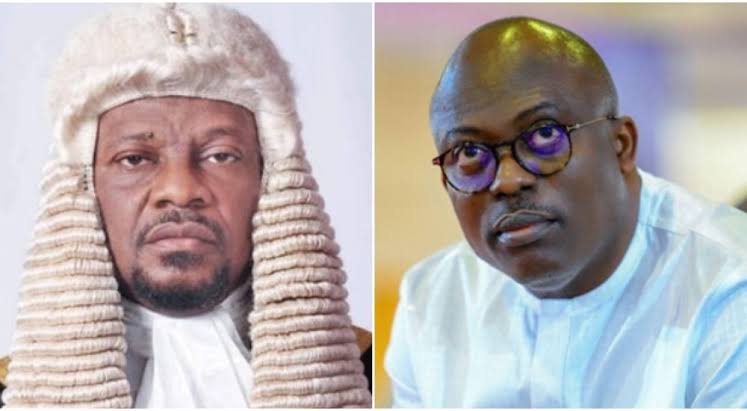The Federal High Court sitting in Abuja has restrained the Central Bank of Nigeria (CBN) from making allocations to the Rivers State Government until a ‘lawful’ appropriation Act is passed by a validly constituted State House of Assembly.
This decision was made by Justice Joyce Abdulmalik in response to a suit filed by the Rivers State House of Assembly, led by Martins Amaewhule.
Justice Abdulmalik held that the decision by Governor Siminalayi Fubara to present the Rivers State’s 2024 Appropriation Bill to a four-member Assembly, that was not properly constituted, should not be allowed to stand.
The court order essentially puts a hold on any further funding to the Rivers State Government until the necessary legislative steps are taken.
This means that the state’s financial activities will be on hold until the House of Assembly passes a lawful appropriation act.
The Court of Appeal sitting in Abuja affirmed Martin Amaewhule as the recognised Speaker of the Rivers State House of Assembly.
Justice James Omotosho of the Federal High Court Abuja had also nullified the N800billion budget passed by the Edison Ehie-led group of the Rivers State House of Assembly and signed into law by the Rivers State Governor, Siminalayi Fubara.
The court also upheld the suit filed by the Assembly and Speaker Martin Amaewhule, against Fubara, which sought an order of injunction restraining the governor from frustrating the Assembly under his leadership as speaker, among others.
On December 13, 2023, in the heat of the protracted political crisis rocking the oil-rich state and the demolition of the Assembly Complex, Fubara presented the 2024 budget proposal of N800bn to five members of the State Assembly led by Edison Ehie.
The Budget presentation was done at the Government House in Port Harcourt, following the demolition of the Assembly Complex by the state government and after a court restrained Ehie’s contender, Martins Amaewhule, from using the Assembly Complex.
Ehie and the other pro-Fubara lawmakers passed the budget estimates and the governor signed the bill into law, saying it is aimed at promoting economic development through inclusive growth and addressing socio-economic inequality in the state.

